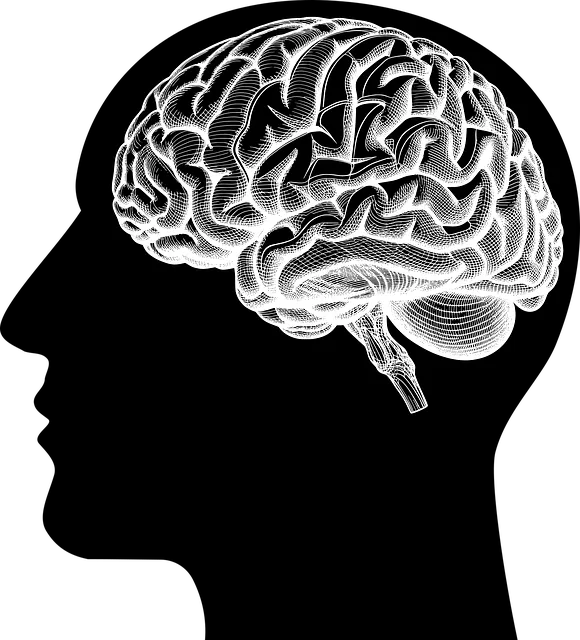Cultural sensitivity is a key driver of successful mental healthcare at Greenwood Village Kaiser Permanente, addressing diverse patient needs through tailored, holistic approaches that blend evidence-based practices with traditional healing methods. This strategy, exemplified in their comprehensive training and policy initiatives, enhances cross-cultural communication, builds trust, and improves treatment outcomes. By incorporating cultural insights into services and outreach, Greenwood Village Kaiser Permanente promotes mental wellness for all patients, aligning with their commitment to inclusive mental health awareness and improved coverage.
Cultural sensitivity is an essential aspect of providing quality mental healthcare, ensuring equitable access to services for all. This article explores the concept of cultural sensitivity in mental healthcare, drawing insights from Greenwood Village Kaiser Permanente’s innovative approach to mental health coverage. We’ll delve into the challenges and benefits of culturally competent practice, offering strategies for effective cross-cultural communication that can transform lives. Discover how organizations like Greenwood Village Kaiser Permanente are revolutionizing mental healthcare through inclusive practices.
- Understanding Cultural Sensitivity in Mental Healthcare
- Greenwood Village Kaiser Permanente's Approach to Mental Health Coverage
- Challenges and Benefits of Culturally Competent Practice
- Strategies for Effective Cross-Cultural Communication
Understanding Cultural Sensitivity in Mental Healthcare

Cultural sensitivity is a cornerstone in mental healthcare practice, reflecting an awareness and appreciation of diverse cultural beliefs, values, and behaviors. It goes beyond mere understanding; it involves tailoring care to meet individual needs, ensuring every patient feels heard and validated within their cultural context. This approach is particularly relevant for Greenwood Village Kaiser Permanente’s mental health coverage, which serves a diverse community. By incorporating cultural sensitivity, mental health professionals can foster trust and improve outcomes for patients from various backgrounds, be it racial, ethnic, or religious.
The importance of cultural sensitivity cannot be overstated in the context of Mental Health Awareness initiatives. It plays a pivotal role in the Mental Wellness Podcast Series Production, where discussions often revolve around culturally relevant strategies for mental health support. Furthermore, risk assessments for mental health professionals must consider cultural factors to prevent miscommunication and ensure safe, effective treatment. This holistic approach not only enriches patient experiences but also contributes to the broader goal of promoting mental wellness in an inclusive manner.
Greenwood Village Kaiser Permanente's Approach to Mental Health Coverage

Greenwood Village Kaiser Permanente has made significant strides in improving mental health coverage and services, aligning with their commitment to holistic emotional well-being promotion techniques. Recognizing the diverse cultural backgrounds of their patient population, they’ve implemented comprehensive healthcare provider cultural competency training programs. This initiative ensures that healthcare providers are equipped to offer sensitive and effective care tailored to individual needs.
By prioritizing cultural sensitivity, Greenwood Village Kaiser Permanente aims to create a supportive environment where patients from all walks of life feel understood and respected. Their approach leverages evidence-based practices alongside traditional healing methods, fostering a holistic perspective on mental health. This inclusive strategy not only enhances the quality of care but also encourages open dialogue about mental health, encouraging individuals to seek support without stigma or hesitation.
Challenges and Benefits of Culturally Competent Practice

Cultural sensitivity in mental healthcare is a complex yet rewarding endeavor. The challenges are multifaceted, from navigating diverse belief systems and communication styles to understanding historical and systemic barriers that affect access to care. For instance, in communities like Greenwood Village where Kaiser Permanente offers mental health coverage, cultural competency requires providers to be aware of the unique needs and preferences of their patient population, many of whom may have specific linguistic, religious, or ethnic backgrounds.
Despite these challenges, culturally competent practice offers substantial benefits. It improves patient engagement and satisfaction, leading to better treatment outcomes. By incorporating cultural insights into mental health policy analysis and advocacy, healthcare providers can develop more inclusive services. Even initiatives like community outreach program implementation and mental wellness journaling exercise guidance can be tailored to respect diverse communities, fostering a sense of belonging and trust. This approach not only strengthens the bond between healthcare providers and patients but also promotes overall mental wellness within these communities.
Strategies for Effective Cross-Cultural Communication

In the diverse landscape of mental healthcare, effective cross-cultural communication is a game-changer, especially at institutions like Greenwood Village Kaiser Permanente, where a wide range of patients seek mental health coverage. Sensitivity to cultural differences can significantly enhance therapeutic outcomes and foster a sense of trust between patients and caregivers. One of the primary strategies involves actively listening and observing non-verbal cues. Every culture has unique ways of expressing emotions and communicating, so healthcare professionals must be attuned to these nuances. For instance, some individuals may express anxiety or distress through subtle body language or indirect speech, whereas others might display open emotional displays.
Adopting a flexible and adaptable approach, where questions are encouraged to clarify understanding, can bridge cultural gaps. Using simple, clear language and avoiding medical jargon that might be unfamiliar to the patient is also beneficial. Additionally, integrating resilience building, depression prevention, and anxiety relief techniques that resonate with the patient’s cultural background can improve engagement and adherence to treatment plans. This personalized approach not only respects cultural identity but also empowers individuals to take an active role in their mental well-being.
In conclusion, cultural sensitivity in mental healthcare is a vital component of providing effective and equitable treatment. As evidenced by Greenwood Village Kaiser Permanente’s comprehensive approach to mental health coverage, recognizing and addressing cultural differences can significantly enhance patient outcomes. By understanding the challenges and benefits of culturally competent practice, healthcare professionals can employ strategies for cross-cultural communication that foster trust, respect, and understanding. These efforts ensure that all individuals receive compassionate, tailored care, ultimately improving access and quality in mental healthcare services.






